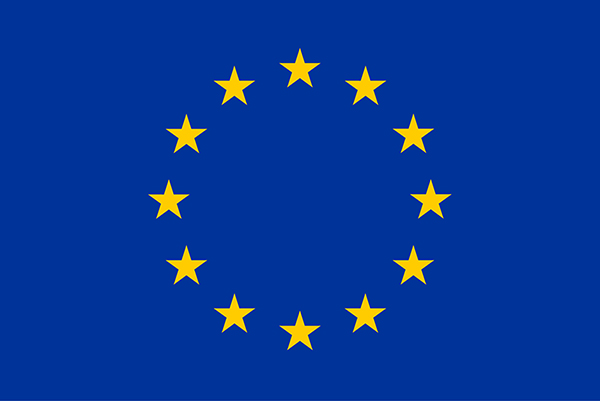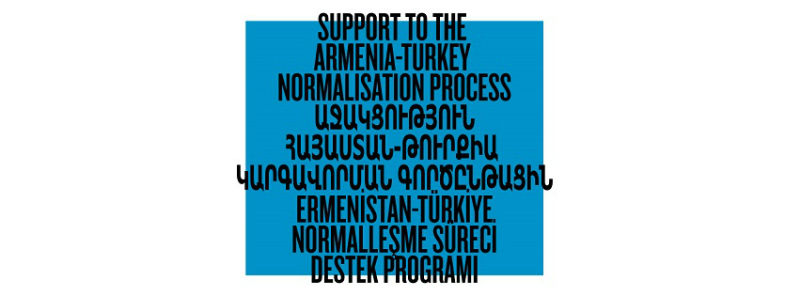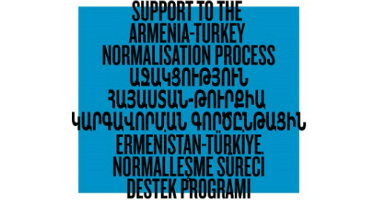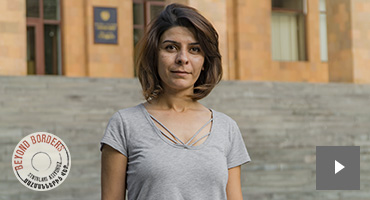A consortium of eight civil society organisations from Turkey and Armenia presented the EU-funded programme Support to the Armenia-Turkey Normalisation Process in Ankara at TEPAV conference room on October 21st.
Güven Sak, the Executive Director of TEPAV, opened the event highlighting the importance of the fact that for the first time in a second-track effort, eight civil society organisations with different areas of interest from the two neighbouring countries are working together effectively for nine months. Güven Sak emphasized the need for new avenues and creative win-win projects to reinforce normalisation between Turkey and Armenia, and thanked the EU for supporting a wide range of projects from media exchange to cultural cooperation to meetings of technology entrepreneurs within the framework of the programme.
Bela Szombati, Chargé d'Affaires a.i. of the Delegation of the European Union to Turkey, delivered a welcoming speech, stating that “Bilateral relations between Turkey and Armenia have been deadlocked since 1993. The signature of bilateral protocols in 2009 was an important step forward towards normalisation of relations between the two countries that was not followed through. With this programme, the EU aims to support, in an innovative and wide-ranging manner, the efforts civil society is making towards the normalisation of relations through enhancing people-to-people contacts, expanding economic and business links, promoting cultural and educational activities, and facilitating dissemination of balanced information."
Programme’s Communication Coordinator Burcu Becermen from the Hrant Dink Foundation, Turkey and Vazgen Karapetyan, the Associate Director of Eurasia Partnership Foundation, Armenia presented different aspects and plans of the programme, its beneficiaries, achievements so far, and upcoming activities to representatives of civil society, local and international partner organisations, as well as to the media from Turkey and Armenia.
The most remarkable results of the Programme over the nine months of implementation include but are not limited to the 130 sub-grant scheme applications from the two countries, more than 520 applications to the Turkey-Armenia Travel Grant opportunity, 88 organisations in Armenia and Turkey showing interest in hosting a fellow from the neighbouring country, more than 60 jointly elaborated film projects, more than 40 teachers meeting in a summer school for confidence-building, more than 50 investors from Turkey showing interest to visit Armenia to explore opportunities of cooperation, which undoubtedly indicates considerable interest of the two societies in a dialogue. The Programme will soon deliver the results of collaboration between a group of Armenia- and Turkey-based architects and architecture historians who will jointly study the pieces of Armenian cultural heritage in Turkey, which will create a good basis for the proper rehabilitation of those monuments in the future.
Speakers elaborated on the social, cultural, economic, and political developments that can positively influence Armenia-Turkey relations in the coming months. Burcu Becermen emphasized the increasing role and demand of the civil society in both countries towards normalisation and human interaction: "Individuals and civil society organisations from Turkey, from different walks of life and different regions, have shown great interest in the overall Programme, have taken part in outreach meetings and are contacting us on a daily basis to get engaged in the Programme activities so that they can travel to Armenia to get to know their neighbours and learn more about people and culture. Given the fact that the border is closed by Turkey and the very low awareness levels of citizens of Turkey about their neighbours, this demand indicates that civil society in Turkey is in favour of normalisation.”
Vazgen Karapetyan talked about the perception of the Programme in Armenia saying that “Several hundred thousands, if not millions of citizens of Turkey build civil society there on a daily basis. This involves actions that move Turkey towards a more democratic society; this also means that a good deal of these people try to reevaluate their past, and fill in the gaps in the national memory. No wonder that more and more people there learn about the tragedy of Armenia-Turkey relations, and try to come to terms with their history, which is often a family history. Our project helps provide them with an opportunity to do that. Armenians, on the other hand, learn about the current inhabitants of modern Turkey, and clear up the ‘diabolic image’ that they might have about the peoples of the neighbouring country."
Ussal Şahbaz informed the audience about the TEPAV’s study exploring the opportunities of economic cooperation between the SMEs of Turkey and Armenia as well as the Exchange of Entrepreneurs project. He noted that TEPAV witnessed a high level of interest from stakeholders in Turkey to participate in the Exchange of Entrepreneurs event in Armenia and thus doubled the members of the Turkish delegation. 30 venture capitalists, angel investors and young entrepreneurs from Turkey will travel to Armenia to take part in the Armenia-Turkey Startup Weekend on November 8-9, in Gyumri, an entrepreneurship festival, where they will work on developing business ideas together with their peers from Armenia. The business ideas will be judged by a joint committee of investors from both countries. The exchange will play a significant role in connecting entrepreneurs and expand economic and business links.
The implementing Consortium will hold another presentation of the Programme in Yerevan and in Istanbul in early summer 2015 to share with the Armenia- and Turkey-based stakeholders the upcoming achievements of and lessons learned from the Programme.
The ongoing and upcoming activities of the Programme will be announced in the trilingual website www.armenia-turkey.net.
Support to the Armenia-Turkey Normalisation Process is a Programme implemented by a Consortium of eight civil society organisations from both countries with the financial assistance of the European Union under the Instrument for Stability.
The overall objective of the Programme is to promote civil society efforts towards the normalisation of relations between Turkey and Armenia and towards an open border by enhancing people-to-people contacts, expanding economic and business links, promoting cultural and educational activities and facilitating access to balanced information in both societies.
The Consortium partners include Civilitas Foundation (CF), Eurasia Partnership Foundation (EPF), Public Journalism Club (PJC), Regional Studies Center (RSC) from Armenia; and Anadolu Kültür,Economic Policy Research Foundation of Turkey (TEPAV), Helsinki Citizens’ Assembly (hCa), and Hrant Dink Foundation from Turkey.

Support to the Armenia-Turkey Normalisation Process
is funded by the European Union.
www.armenia-turkey.net



